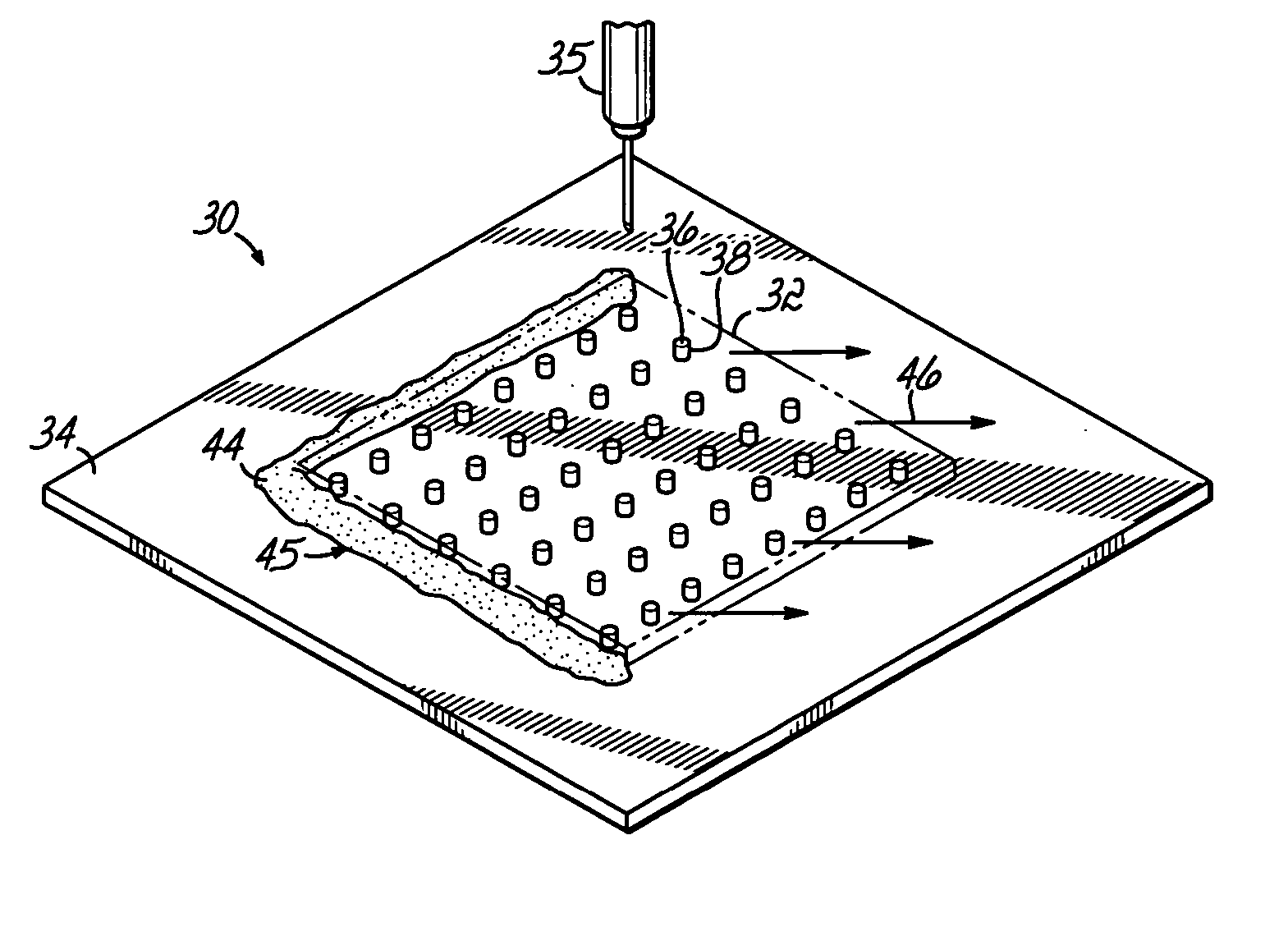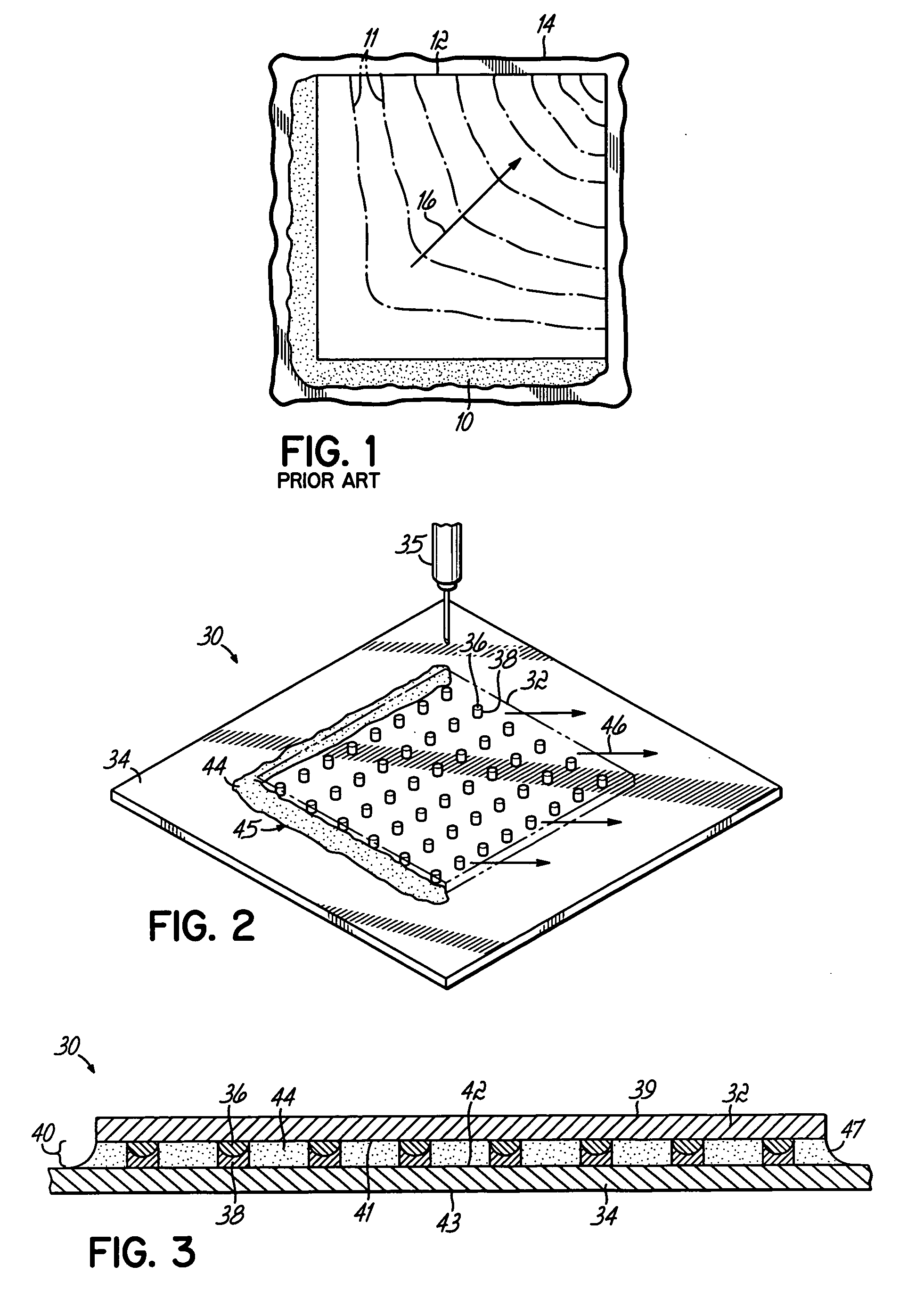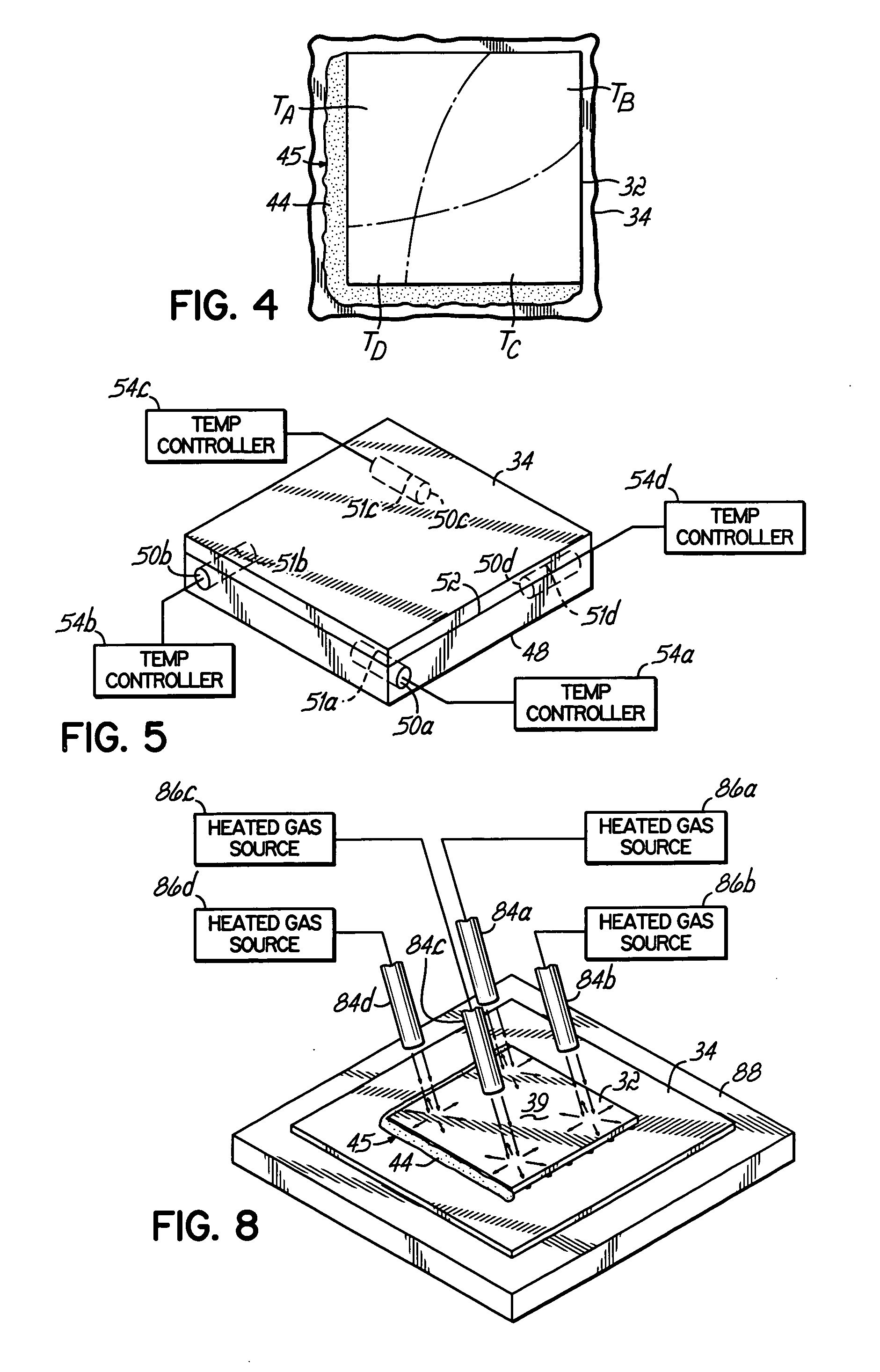Method and apparatus for underfilling semiconductor devices
a semiconductor device and liquid dispensing technology, applied in the direction of semiconductor devices, electrical apparatus, basic electric elements, etc., can solve the problems of significant thermally induced stresses, space or gap between the die and the package carrier, and degradation of the performance of the die, so as to reduce the incidence of void formation, and reduce the viscosity of the material
- Summary
- Abstract
- Description
- Claims
- Application Information
AI Technical Summary
Benefits of technology
Problems solved by technology
Method used
Image
Examples
Embodiment Construction
[0033] With reference to FIGS. 2 and 3, a semiconductor device package 30 consisting of a die 32 mounted on a package carrier or substrate 34 in a flip chip mounting arrangement is shown. As those skilled in the art will appreciate, substrate 34 may comprise an organic or ceramic substrate material such as a printed circuit board, a flip chip multi-chip module or a flip chip carrier. The die 32 is electrically and mechanically connected to the substrate 34 through an area array of solder bumps 36 on the underside of the die 32 that are registered or aligned with a corresponding area array of solder pads 38 on the substrate 34. Upon heating, the solder pads 38 on the substrate reflow and physically connect with the solder bumps 36 of die 32 to provide mechanical, thermal and electrical coupling therebetween in the form of solder joints. With this mounting arrangement, a gap 40 is formed between a contact side 41 of the die 32 and a top surface 42 of the substrate 34.
[0034] The gap 4...
PUM
| Property | Measurement | Unit |
|---|---|---|
| impingement angle | aaaaa | aaaaa |
| impingement angle | aaaaa | aaaaa |
| heat energy | aaaaa | aaaaa |
Abstract
Description
Claims
Application Information
 Login to View More
Login to View More - R&D
- Intellectual Property
- Life Sciences
- Materials
- Tech Scout
- Unparalleled Data Quality
- Higher Quality Content
- 60% Fewer Hallucinations
Browse by: Latest US Patents, China's latest patents, Technical Efficacy Thesaurus, Application Domain, Technology Topic, Popular Technical Reports.
© 2025 PatSnap. All rights reserved.Legal|Privacy policy|Modern Slavery Act Transparency Statement|Sitemap|About US| Contact US: help@patsnap.com



